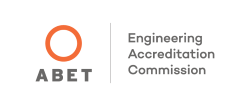Highlights
ABET-accredited
Only school in Pennsylvania's State System with 6 ABET accredited programs
What You'll Learn
Curriculum includes electronics, circuit design, control systems, and embedded systems.
Hands-on Experience
Lab-work integrating simulation and hardware design

The Electrical Engineering program provides a practical and in-depth education in electronics, communications, and energy. Students gain both theoretical knowledge and applied design skills, preparing them for a wide range of industries such as telecommunications, renewable energy, and automation.
Through the classroom, hands-on labs, and industry-standard design techniques, students build a foundation in advanced math, science, and engineering.
Course work for Electrical Engineering, BS
Accreditation Information
Our ABET-accredited BS in Electrical Engineering focuses on electrical devices, their theory of operation, and the related science. The program combines advanced physics, including courses in electricity and magnetism, quantum physics, electronics, and semiconductors. The program includes advanced study in non-linear electronics, micro-controllers, control systems, signals and systems, digital logic and reconfigurable computing. Graduates of the program will be well prepared to develop electronic systems for industry or government applications; and be prepared to purse advanced study at the graduate level.

